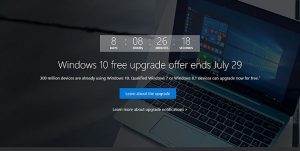A family member recently joined an organization and was told that they would need a Gmail account since that is what the business uses. They contacted me asking if that was good business practice and my answer was “absolutely not” and here is why.
The primary reason is that free email services sell your data. As an example, Google allows third-party services to connect to Gmail accounts. The apps request permissions that include the ability to “read, send, delete and manage your email”. The Wall Street Journal reports that “thousands” of messages had been read not by algorithms but by employees, something which Google says is perfectly fine and allowed by its policies. By owning your own domain, you own the access to your email, and it is therefore not sold to other businesses.
If I receive a professional email from someone using a free email service, I disregard it immediately and block the sender. If the business owner couldn’t spend a few dollars and a little time to enhance the business image and protect the content of our correspondence, then what other corners are they cutting? Google’s G Suite, Microsoft’s Office 365, and GoDaddy’s Email Plus are all services that offer email accounts at about $5 per account per month.
When corresponding with clients you need to buy your own domain so that your emails come from JDoe@BusinessName.com and not JDoe@Yahoo.com or JDoe@Gmail.com. In the past, a custom domain was a sign of experience and dedication but these days it is expected.
Custom domains are inexpensive, and it takes just a few minutes to create the associated email addresses.
.
We at Advanced Systems Solutions have helped hundreds of organizations setup and configure their own domain. If you’re looking for a support company to help you improve your brand image, with unmatched customer service, please contact us. We love to help!
Like our Facebook page by clicking on the icon at the top right of this page to stay up to date with current alerts and information!
Disclaimer: The above information is not intended as technical advice. Additional facts or future developments may affect subjects contained herein. Seek the advice of an IT Professional before acting or relying on any information in this communiqué.




